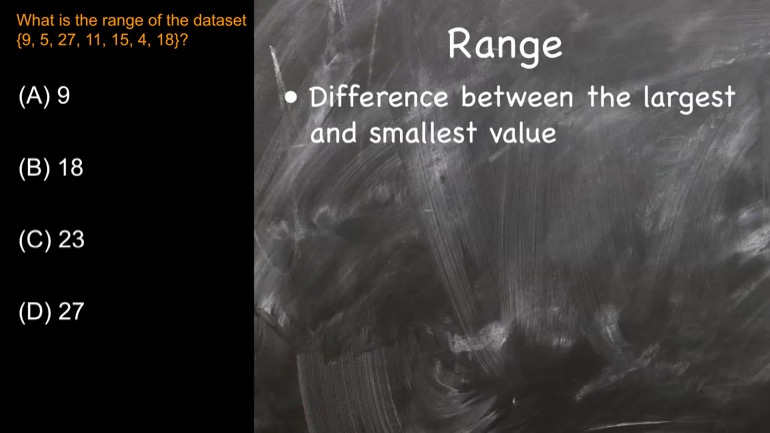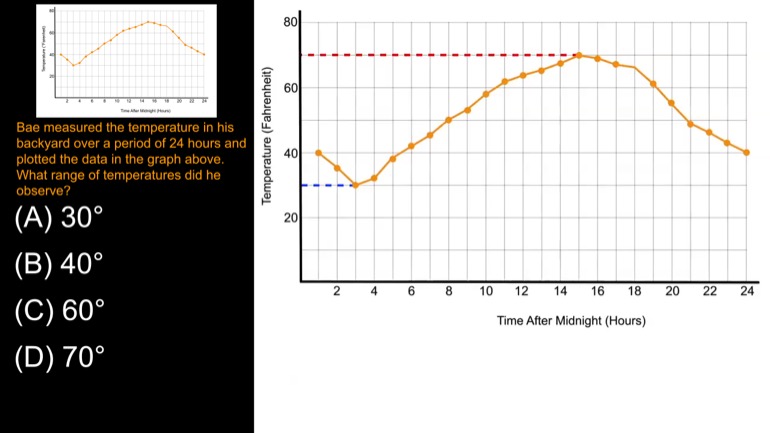ShmoopTube
Where Monty Python meets your 10th grade teacher.
Search Thousands of Shmoop Videos
Main Idea and Supporting Details Videos 20 videos
Dogs have the ability to "read" human emotions. For example, dogs have been shown to discriminate between humans who approach in a friendly manner...
Samuel Hahnemann, a German physician and the founder of homeopathy, began as a village doctor and quickly became dissatisfied with how medicine was...
Jefferson Davis was an unusual man. During a long and frequently tragic life, his favorite job, according to his wife Varina, was serving as a U.S....
TSI Reading: Interpreting Explicit Details 10 Views
Share It!
Description:
No disease in history has destroyed more lives than the "speckled monster," smallpox. Traditionally, the only way to prevent smallpox was inoculation, a medieval Indian and Chinese practice imported to Europe in the early 1700s. Doctors originally collected pus or scabs from someone with a mild case, then scratched the patient's upper arm and introduced diseased matter. With luck, the patient got a mild case as well—some aches, a few pustules—and therefore became immune. All too often, though, inoculation backfired, and a full-fledged case of smallpox flared up. For this reason, most people agonized over whether to inoculate their families.
According to the passage, the goal of inoculation was to
(A)remove the infection from a patient's wounds
(B)infect patients so they would gain immunity
(C)cure patients already infected with smallpox
(D)quarantine infected persons to prevent contamination
Transcript
- 00:02
Okay reading shmoop er's Here we go another paragraph Another
- 00:05
day another dollar more or less that's What they pay
- 00:07
us around here according to passage the goal of inoculation
- 00:11
wass to what No disease in history is disorder more
- 00:17
lives and the speckled months or smallpox Traditionally the only
Full Transcript
- 00:20
way to prevent small cycle is inoculation on medieval indian
- 00:23
and chinese practice imported to europe in the early seventeen
- 00:25
hundred Dr originally collected puss or scabs from some of
- 00:28
the mild case Then scratch patients upper arm and introduced
- 00:31
the disease matter well With luck patient got a mild
- 00:33
cases Well some eggs for you plus jewels and therefore
- 00:36
became immune All too often the inoculation backfired in a
- 00:38
full fledged case of smallpox flared up For this reason
- 00:41
most people agonized over whether to inoculate their families Okay
- 00:44
well let's think about this How weird is science Believe
- 00:47
it or not the only way to make sure that
- 00:50
you don't get this disease is tio What is it
- 00:52
Oh yeah Give you the disease Well text makes it
- 00:55
clear that inoculation was a primitive form of modern vaccinations
- 00:59
Minus the lollypop reward You get there for being brave
- 01:03
and not crying I usually get that usually Okay Well
- 01:06
the answer here has got to be infect patients so
- 01:09
that they would gain immunity Right That's the goal here
- 01:13
The loser bowl Is pretty clear Removing the infection from
- 01:16
one person was well part of the process but it
- 01:18
wasn't the goal and inoculation was only used on healthy
- 01:22
people which is why it was such a gamble Quarantine
- 01:25
was a tactic used in treating smallpox but that's different
- 01:28
from inoculation Totally different A quarantine be kind of lonely 00:01:33.016 --> [endTime] all right that's it we're done
Related Videos
Dogs have the ability to "read" human emotions. For example, dogs have been shown to discriminate between humans who approach in a friendly manner...
Samuel Hahnemann, a German physician and the founder of homeopathy, began as a village doctor and quickly became dissatisfied with how medicine was...
Jefferson Davis was an unusual man. During a long and frequently tragic life, his favorite job, according to his wife Varina, was serving as a U.S....
Stephen Mitchell suffered from allergies. A thirty-five-year-old professor at Syracuse University, he found sanctuary in the temperature-controlled...
The Landsat Program provides the longest continuous space-based record of Earth's land in existence. Since 1972, Landsat satellites have collected...



















